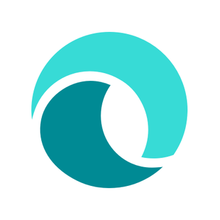
How We Successfully Pivoted Our App For Coworking Spaces To A $50K/Month Platform To Book Event Venues
Note: This business is no longer running. It was started in 2018 and ended in 2023. Reason for closure: Acquired by Eventflare.
Hello! Who are you and what business did you start?
Hi, I’m Dietrich, a retired investment manager and co-founder of Spacehuntr. Spacehuntr is a fully integrated 360° platform that enables businesses to book and manage unique Work, Play & Stay spaces for corporate events in one easy to use platform that acts as a digital event planner.
Our clients are some of the largest international corporations such as Airbnb, UBER, Netflix, Gucci, etc., and absolutely love that they can book and manage everything for their international event in just one place, instead of having to book the venue, hotel, transport, etc.
We are operating internationally, currently out of 13 popular European MICE cities, and are headquartered in Belgium.
In 2019, revenues grew +700% and we are, despite the global pandemic, on track to match this growth in terms of international expansion in 2020.

What's your backstory and how did you come up with the idea?
During my corporate life, I had the unfortunate pleasure to spend an insane amount of hours in dreadful and tiring meeting rooms - basically further draining the life out of us.
Now, this didn’t necessarily spark the idea to launch Spacehuntr, but it did create a profound aversion to traditional corporate meetings, which later would serve as the backbone of Spacehuntr.
In fact, Spacehuntr was initially meant to be a platform for the coolest coworking spaces. We had it all figured out - or at least we thought so. We spent over 6 months automating the product, it was beautiful and included more features than a full option Mercedes Benz. The only issue was, we forgot to test on a beachhead market and hence developed a product without having a market.
Luckily, we realized that rather soon - but I suppose that with literally zero sales it is not that hard either to notice something is off. The actual turning point though came with our first sale. It turned out the client was lost, and was looking for a unique venue in Brussels but couldn’t figure out where to go. Being from the USA, he also couldn’t possibly do a site visit.
We ended up taking care of it all, made some money on the way, and, more importantly, realized we could specialize in helping foreign clients find the most unique spaces for their international events.
Since pivoting, we almost had an immediate spike in demand with sales following soon after. Ever since we have been growing steadily and managed to supercharge our hiring process.
Take us through the process of designing, prototyping, and manufacturing your first product.
The first product (the coworking app) we designed by mapping out every step possible to book a coworking desk. Up to today, I believe it might have been the most extensive mapping we have done. We mapped it all and invested significant time and resources (too much) on automating it all. Honestly, our MVP might have been more automated then than Spacehuntr is today, although we have much more sales now.
I believe it’s important to preserve a human-to-human approach, especially in a B2B business.
In fact, I think we spent too much time mapping and automating the process and too little on real-life testing setting us back a few months.
When a startup veteran told us to “do non-scaleable things in the beginning”, we pivoted our focus from automating to selling. That was the turning point of our false start and the moment we started to generate traction.
Describe the process of launching the business.
It was both my cofounder’s and my first startup, so we naturally had issues prioritizing stuff. This is different now, but in those days, we spent significant time on everything we did, as you know, it all had to be perfect and everything was of “vital” importance. Today we have learned the importance of prioritizing and where to spend our time.
But when we launched, this perfectionist attitude combined with a bootstrapping mindset proved to be a lethal combo and slowed us down significantly! Having a perfectionist attitude is all very well and good, but then you need the money to ensure you can hire professionals to ensure timely execution.
And as we had no money, we did it all ourselves, but that caused our ramp-up period to be longer than usual.
Over time we realized this, which allowed us to take on a different position and forced us to prioritize tasks. And although we still don’t like to recognize it, at moments we did push out features that we knew were not yet finished, but doing so would deliver valuable market insights and serve the final product tremendously.

Since launch, what has worked to attract and retain customers?
As they say, earning the first buck is the hardest and that was very much the case for us too. Wheeling in the first clients and ensuring they come back is hard. And that’s probably quite normal too, as your early-stage product is not yet on point and likely not even completely defined, let alone properly communicated.
However, in our experience, despite being the hardest to convert, early customers end up being the most valuable. They helped us further define and optimize the product. Their value went above and beyond revenues only, for us, they have played an instrumental role (and still do) when we want to market and test new ideas or features.
In terms of client retention, we have a retention rate of around 33%, which is rarely heard of in our industry. However, I believe that the main reason for this is our extraordinary focus on customer success and support. As far as I am aware, we are the only company in our industry that has a 24h hotline for all our clients.
Also when automating your product, which is probably very much needed to be profitable or even reach break-even, I believe it’s important to preserve a human-to-human approach, especially in a B2B business. It doesn’t have to be significant or by default have an H2H element in the process, but clients should have the option to go for it.
How are you doing today and what does the future look like?
We were on track to reach break-even in May 2021, but due to the global pandemic, we expect this to be postponed by at least one year, possibly even two years.
In the meantime, however, we scaled back on salesforce acquisition and scaled up talent acquisition for creative content and product development.
Unfortunately, due to the current global situation, we cannot very precisely predict and plan for the future. However, we’re not standing still. Today, we’re preparing for further international expansion in important European MICE cities and even North America. Apart from this, it is part of our mission to be not only market leaders but also to produce industry thought leadership.
In this light, we’re dedicating significant resources to produce the highest quality content, about the latest trends in the event industry, do’s & don’ts and tips & tricks for organizing an event, and location and venue suggestions to provide in-depth knowledge in the event industry.
Another trend that cannot be ignored is the increase in the popularity of hybrid and virtual events. The definition of ‘event’ gets a new, virtual dimension that opens new doors and offers us loads of new opportunities to explore.
However, this doesn’t mean that the traditional, physical meetings are dead! Indeed, remote working becomes the norm, but it is a very interesting shift that is right up Spacehuntr’s street and has a lot of future potentials. When working remotely, companies will search for new ways to bring their global team together every so often to maintain bonding and group feeling and to allow teammates to get to know each other in person. As fixed offices won’t or don't exist anymore, remote meeting spaces and event venues will be the new coffee corner to chat and meet up physically.
Through starting the business, have you learned anything particularly helpful or advantageous?
I learned more in three years running a startup than five years of University and more than seven years working in a corporate function combined.
Go for progress and make sure you keep improving. The single fact that you allow yourself the liberty of failing will allow you to take on greater risks.
Whilst there are many, one of the most valuable lessons we learned was to “Start before you are ready”! In a continuously changing environment, perfection is a myth and it’s better to go for progress than to seek perfection.
We also learned (the hard way) that it doesn’t really matter how much your friends and family tell you how much they like your product or fancy feature. Nor does it matter what your ex-colleagues in the industry say. The only voice that does matter is one of a paying customer. The people actually using your product and not the ones that say they will use it.
What platform/tools do you use for your business?
We swear by Hubspot for sales - it’s not cheap, but you really got your worth out of it. It is insanely comprehensive and our sales team loves it! It’s a tool that makes your life so much easier. I really recommend it to everyone and try to start with it as soon as possible, as there is some learning curve to it.
Otherwise, we tend to use Trello for project management as it allows us to simultaneously keep track of various projects and keeps us updated on the tasks every single teammate has been working on during the day. Later is our go-to platform for social media scheduling and Wave for a helping hand in finance and accounting purposes.
What have been the most influential books, podcasts, or other resources?
In terms of general mindset, and especially for the aspiring European entrepreneurs, who tend to be a bit more conservative than their American counterparts, I would highly recommend Mindset, by Carol Dweck. The book essentially explains two sorts of mindsets: the “Growth mindset” and the “Fixed mindset”. It highlights the importance of having a growth mindset that keeps on positively challenging you to achieve more. The book provides some interesting insights on how to further develop this above and beyond being actively aware of it.
On a more technical note, I would highly recommend the courses of Authority Hacker - again not the cheapest - but definitely the best. I bought the pro version and have definitely gotten my value out of them. In fact, I regularly go back to it, as it’s a lifetime membership when I am not sure how to approach a technical SEO matter. And chances are big I’ll find what I need through one of their many blueprints.
Advice for other entrepreneurs who want to get started or are just starting?
Allow yourself to fail! Give yourself two years to try and experiment. Don’t go for perfection from the onset. Rather go for progress and make sure you keep improving. The single fact that you allow yourself the liberty of failing will allow you to take on greater risks.
From my experience, a lack of money or VC funding is rarely the reason why startups fail. It’s more often related to time and risk. Too often, founders take on too little risk by not differentiating enough from the competition and just try replicating a proven model with minimal or only esthetical changes. In this way, they are not able to disrupt the market and are quickly bypassed by others.
Another common and related reason startups fail is due to a time-to-market that’s way too long. This relates to risk too, but it’s from a different angle. Here, founders don’t necessarily seek to make money by copying a proven model, but they are rather incapable of pushing out an MVP that is not perfect, let alone when the product is nowhere near perfect. The latter is foolish in a way as any real market feedback on a product is so much more valuable than 2 or 3 weeks more in-house R&D.
Not one product has ever been perfect, and it’s more important to go to the market and test with a more simplified product than spending more time on R&D. In fact, when you have the choice to test in the market vs in house R&D, I would nearly always pick market testing!
It’s better to develop features clients ask for and actually need than to develop features you think clients need.
Are you looking to hire for certain positions right now?
YES - We just launched a new hiring campaign, where we are looking to hire around 5 new full-time content creators. This would also allow us to significantly set up the informational added value we deliver to clients and positively impact our SEO. Whilst a large chunk of the workload will be copywriting, we are also screening for good design and audiovisual skills to aid with our new podcast series.
Where can we go to learn more?
If you have any questions or comments, drop a comment below!

Download the report and join our email newsletter packed with business ideas and money-making opportunities, backed by real-life case studies.

Download the report and join our email newsletter packed with business ideas and money-making opportunities, backed by real-life case studies.

Download the report and join our email newsletter packed with business ideas and money-making opportunities, backed by real-life case studies.

Download the report and join our email newsletter packed with business ideas and money-making opportunities, backed by real-life case studies.

Download the report and join our email newsletter packed with business ideas and money-making opportunities, backed by real-life case studies.

Download the report and join our email newsletter packed with business ideas and money-making opportunities, backed by real-life case studies.

Download the report and join our email newsletter packed with business ideas and money-making opportunities, backed by real-life case studies.

Download the report and join our email newsletter packed with business ideas and money-making opportunities, backed by real-life case studies.



















